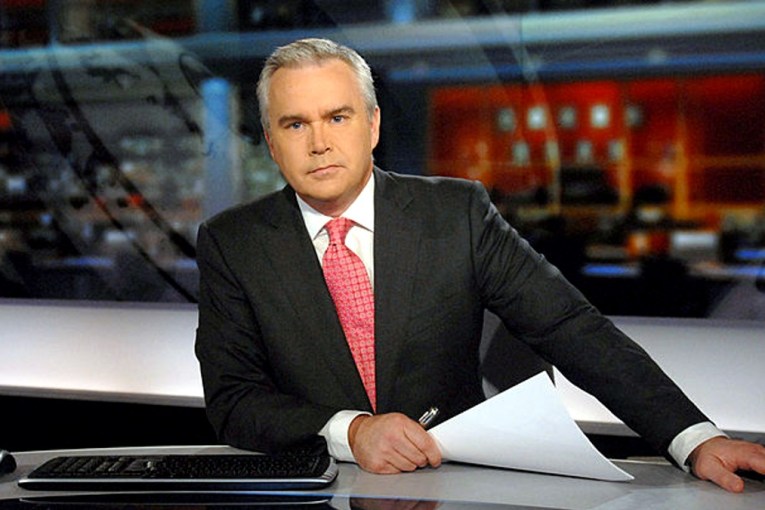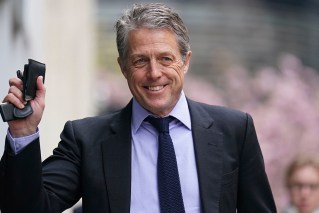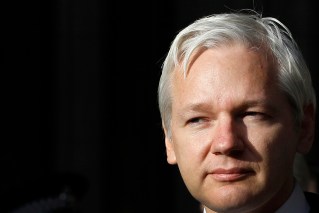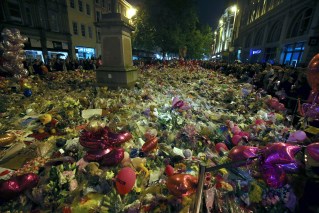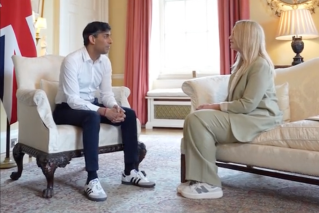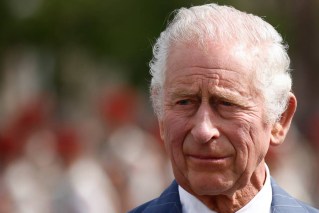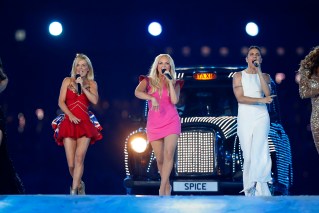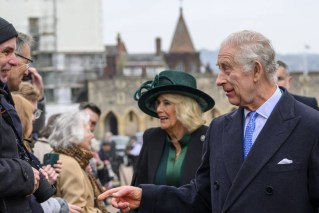Brexit deal reached between UK and European Union ahead of New Year’s Day deadline
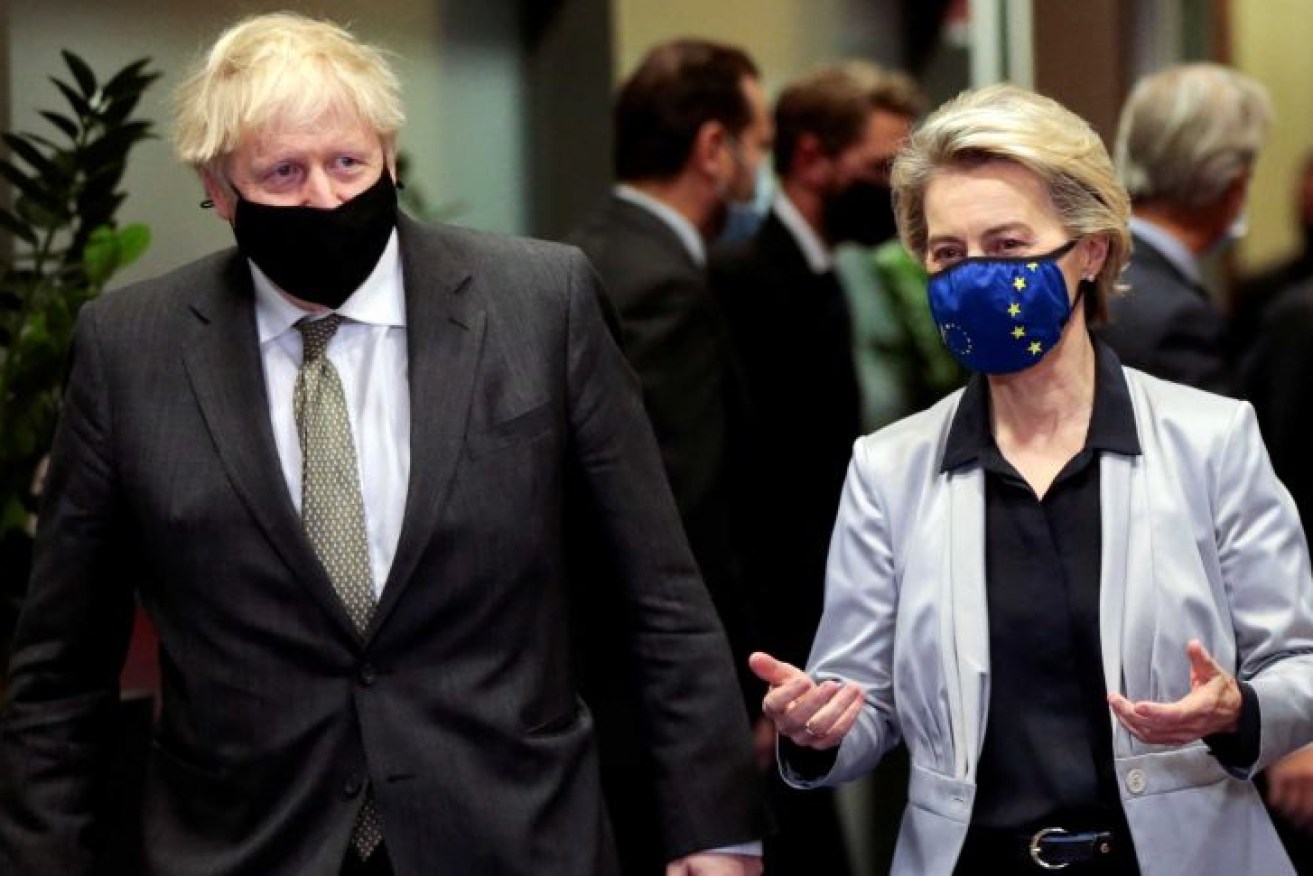
European Commission President Ursula von der Leyen (right) with British Prime Minister Boris Johnson (left) in Brussels earlier this month. Photo: Reuters
More than 1600 days after the United Kingdom voted to leave the European Union, a final trade deal has been agreed that will avoid border and economic chaos on New Year’s Day.
The deal brings an end to a four-year divorce period since the 2016 Brexit referendum, and signals the end of the UK’s membership in the European bloc it had been a part of since 1973.
The 500-page agreement will mean there are no quotas or tariffs on the goods trade that makes up half of the annual commerce between the UK and EU, worth more than $1 trillion.
European Commission President Ursula von der Leyen told a press conference in Brussels the deal was “fair” and “balanced”.
“It was a long and winding road,” she said.
“But we have got a good deal to show for it.
“It is fair, it is a balanced deal, and it is the right and responsible thing to do for both sides.”
British Prime Minister Boris Johnson tweeted a picture of himself inside Downing Street, raising both arms in a thumbs-up gesture of triumph, with the words: “The deal is done.”
The deal is done. pic.twitter.com/zzhvxOSeWz
— Boris Johnson (@BorisJohnson) December 24, 2020
“We have taken back control of our destiny,” he said during a press conference at Downing Street.
“People said it was impossible, but we have taken back control.
“We will be an independent coastal state.
“We will be able to decide how and where to stimulate new jobs.”
Johnson hails ‘jumbo’ deal

Boris Johnson urged Britain to make the most of its ‘new independence’. Photo: Reuters
Mr Johnson described the last-minute agreement as a “jumbo” free trade deal, along the lines of what was done between the European Union and Canada, and urged Britain to move on from the divisions caused by the 2016 referendum.
The deal will also support the peace in Northern Ireland, a priority for US president-elect Joe Biden, who had warned Mr Johnson that he must uphold the 1998 Good Friday Agreement.
EU member Ireland said the deal, which the European Commission website said would be published soon, protected its interests as well as could have possibly been hoped.
The trade deal will not cover services, which make up 80 per cent of the British economy, including a banking industry that positions London as the only financial capital to rival New York.
Access to the EU market for UK-based banks, insurers and asset managers will become patchy at best.
Mr Johnson said the deal did not contain as much as he would have liked on regulatory equivalence for financial services, but still contained some “good language”.
‘Parting is such sweet sorrow’
While both sides praised each other’s negotiators for sticking to their respective stances, Ms von der Leyen was much more sombre in her tone than Mr Johnson’s bullish optimism, even evoking a line from Shakespeare’s Romeo and Juliet.

European Commission President Ursula von der Leyen was sombre during her announcement of the deal. Photo: AP
“Ladies and gentlemen, at the end of a successful negotiation journey I normally feel joy,” she said.
“But today I only feel quiet satisfaction and frankly speaking, relief.
“I know this is a difficult day for some, and to our friends in the United Kingdom, I want to say parting is such sweet sorrow.”
Michel Barnier, the EU’s chief negotiator who had dealt with three different Brexit ministers and three different chief negotiators from the UK, echoed Ms von der Leyen’s sentiments.
“The clock is no longer ticking,” he said.
“Today is a day of relief.
“But tainted by some sadness, as we compare what came before with what lies ahead.”
He said the new deal was built around ambitious and equitable free trade, and an “unprecedented” economic and social partnership.
Deal delayed to the very end
A deal had seemed imminent for almost a day, until haggling over just how much fish EU boats should be able to catch in British waters delayed the announcement of one of the most important trade deals in recent European history.
Mr Barnier said Britain would have a new status as an independent coastal state, and new fishing quotas had been agreed between the EU and Britain.
“The European Union will stand beside its European fishermen, and will accompany them. That is our commitment,” he said.

Britain officially leaves the European Union on January 31 after a debilitating political period that has bitterly divided the nation since the 2016 Brexit referendum. Photo: AP
Although the UK officially left the EU on January 31 this year, it has been in a transition period to negotiate a free trade deal for when Britain leaves the EU’s single market and customs union at midnight on December 31.
The 11-month transition period was to allow for negotiations on a free trade deal with the EU and its 27 member nations.
The UK Parliament will be recalled on December 30 to vote on the deal, which will likely pass with support from the opposition Labour party, while EU ambassadors from all 27 member states will meet on Christmas Day to review it.
Mr Johnson could still face a backlash from members of his own Conservative Party, with MPs from the Eurosceptic European Research Group likely to closely examine the deal and take issue with any perceived concessions from the UK side on disputed areas such as fishing rights and business competition.
